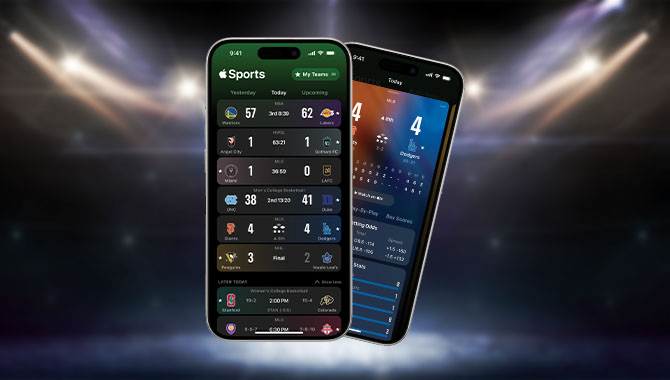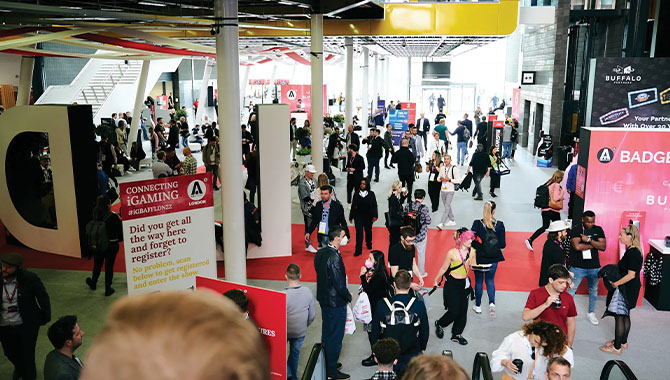How much AI is too much? This was the topic of conversation on Thursday 8 February at iGB Affiliate, as industry members weighed in on finding the balance of leveraging AI without biting off more than you can chew.
The talk was moderated by Betsson Group Head of SEO Caroline Broman. The participants of the talk were Emilio Takas (Kingbet Media Head of SEO), Claire Taylor (TU Internet Marketing Managing Director) and Guillaume Mazella (Better Collective Senior Director, Group Content & Digital Performance).
How has workflow with AI evolved from last year to this year?
Firstly, attention was brought to the growth of AI technology. For affiliates and businesses in general, 2023 seemed like the year that AI came into the mainstream conversation. Chatbot platform ChatGPT launched in late 2022 and grew to one million active users in less than a week, with 100 million users by January 2023. This level of accessibility has made AI a viable tool for just about any business, from major conglomerates to small-team startups.
As Mazella said: “We need to jump onto this trend, but how do we do it?”
Across the panel, the consensus seemed to be that while last year was a time for initial implementation, this year will be one for refinement. “This year is the year we have training... it gives us the opportunity to make what we wanted from the beginning,” Mazella continued.
Notes were also made regarding inefficient early use of AI among affiliates. New and accessible technology often comes with a rush of users engaging with it without knowing how to use it maturely. It was seen with the early internet and the rise of the dot.com bubble, and as history so often repeats, it seems some affiliates have fallen into a similar AI trap. Artificial intelligence allows for quick scalability due to the amount of content the technology can generate; however, while growth may be quick, it may collapse just as quickly. “If it doesn’t help the end user, it may be more harmful to you,” Taylor warned.
Ideation > creation
While AI is a useful tool for creating content en masse, the lack of a ‘human touch’ can make content feel hollow and disconnected. Mazella commented on how work made with AI “from A-Z” can feel “off,” with Taylor adding that if everything is made with AI, companies run the risk of all their content coming out the same.
This is where the idea of using AI for ideation over creation comes in. AI tools, as they currently exist, lack the sophistication to create works with a wholly 'human touch.' However, for generating ideas and being used as a buffering tool to develop and grow existing ideas, AI has potential as a creative aid. Mazella suggested affiliates should take a “hybrid” approach to their use of AI in content creation, allowing human beings to remain at the centre of the creative process while leveraging AI in ways to help speed
up and streamline the creative process.
Furthermore, when creating SEO for ranking content, affiliates work with a wide and experienced team. SEO specialists and managers, along with teams of writers and analysts, work tirelessly to find ways to get content to the top of Google’s listings. “It’s not just one person making 50 prompts and ranking number one on Google,” one of the panelists commented.
Google doesn’t care
Despite all the points made throughout the panel, on the importance of adding human agency to content and the potential for disaster if AI is used for inefficient scaling rates, at the end of it all, if the content is ranking well, Google and other search engines do not care if the work is human or AI generated. Google’s focus is on bringing the content users want to them, with the source only being a secondary concern. As Broman noted, Google’s focus is on “content for people, rather than by people.”
Furthermore, when creating content, the focus should always be on the wants of users. If the focus turns too much to appealing to search engines rather than the end user, it may come back to bite you. “If you don’t have a site for a user experience, if you create for Google, you’re doomed,” Takas said.
Currently, search engines do not distinguish between content made by people or AI. This has begun to be implemented in the AI-generated image field, with the panel seemingly in agreement that such a system may become more widespread in future, with guidance and legislation potentially being implemented to curb the use of videos and imagery without permission. Without such a distinction in place, the affiliate content with the best ranking will therefore be the work most favourable with end users, regardless of origins.
Unique content with rich potential for engagement is not something easily made – it is the struggle of any SEO team and affiliate company. But without human hands to help shape this content, AI will likely struggle to do all the lifting on its own. “It can work for a while, then it stops working entirely,” said Taylor.
Does it provide value to you?
Overall, it seems the answer to the question of ‘how much AI is too much AI’ is... it depends. AI allows for quick content creation without the manpower, able to take one piece of content or one idea and expand upon it. However, like a pyramid of cards, using AI as the entire structure of a business makes it bound to collapse.
Finding the right balance between man and machine will be unique to each business in the affiliate sector, based on each business workforce, business model and objectives. As AI becomes more refined this year and in years to follow, this balance may shift. But even with the most advanced AI, without a human touch, the house of cards can only stand for so long.
Published: 11 March, 2024
Walking the AI wire
A talk at iGB Affiliate in February raised the question of AI – how can affiliates avoid overusing this technology and how can it be navigated for efficient, rather than excessive, use? Trafficology investigates...













